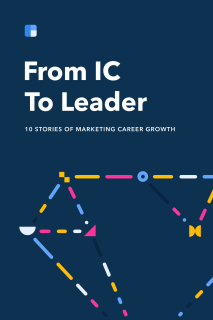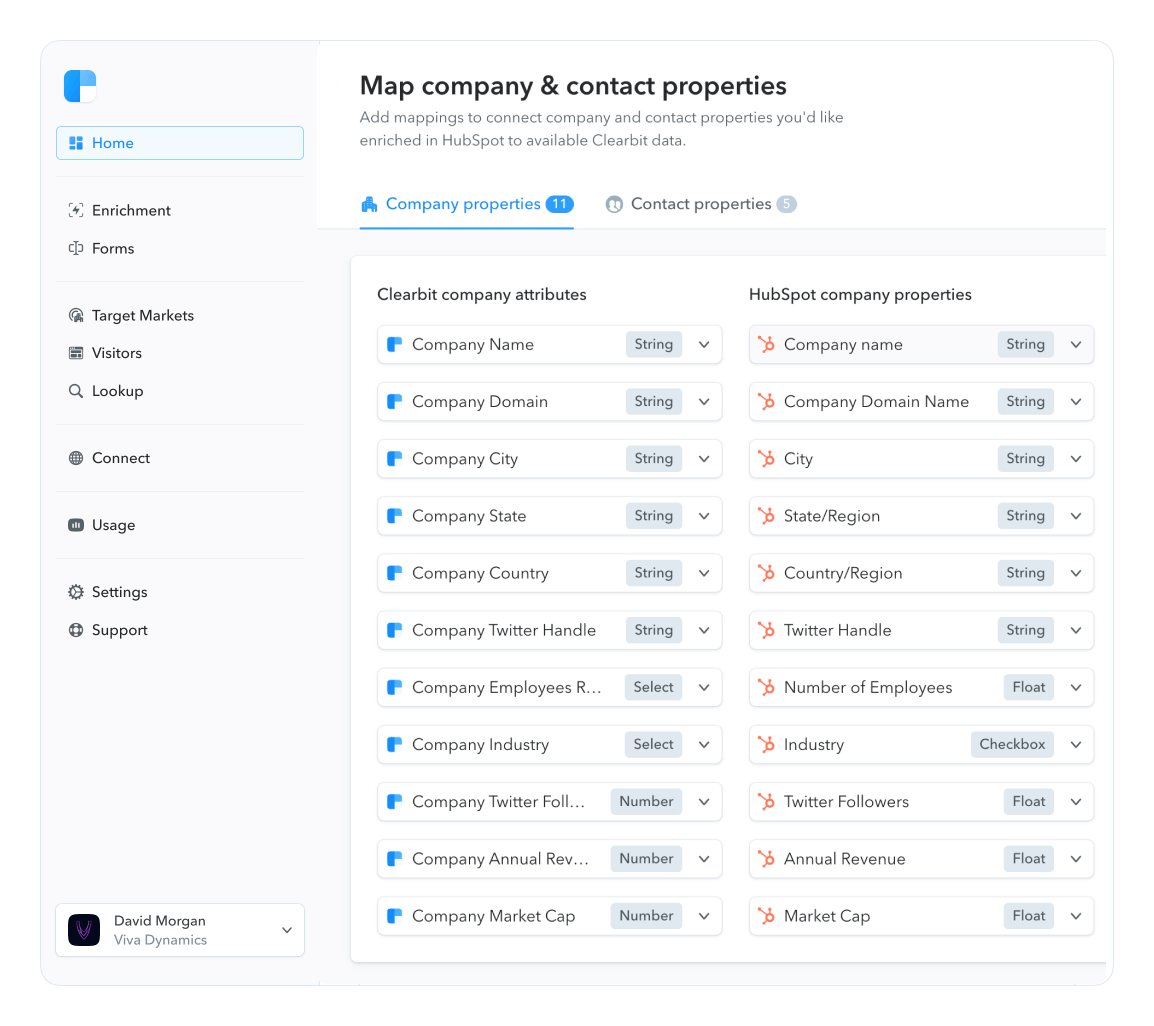Chapter 2
11 minutes
Emily Carrion

Emily Carrion CMO at Rubica
When Emily Carrion graduated from college, she was in a familiar predicament for anyone with a liberal arts degree. Emily, now the CMO of Seattle-based cybersecurity startup Rubica, had studied Spanish and political science at Whitman College and left there in the spring of 2006 armed with a degree that had prepared her for, as she describes it, "everything and nothing."
Emily was not the type who knew from a young age that she wanted to be a doctor or lawyer or entrepreneur. She preferred learning over goal-setting and had not encountered a mentor to encourage her toward one field or another, which is why a graduation present from her mother proved to be such a life-changing opportunity.
Unbeknownst to Emily while she pondered her first post-collegiate move, her mother arranged a series of meetings with ten leaders from a range of different fields. There was a bank vice president, a CEO of a public relations firm, a lawyer — Emily sat with all ten business leaders and conducted informational interviews. She learned what they did, how they got there, and the skills they learned along the way. She picked their brains about the circles they ran in.
Those meetings, she says, were a revelation.
"What was so amazing about that experience," Emily says, "was right off the bat I was able to say, 'okay, there are five things I absolutely want nothing to do with." She laughs. "But there were some others where I said, 'this looks really interesting.' Then I was able to diagnose what were the themes of each job that I found interesting?"
None of the people Emily interviewed were marketers, but the experience taught her what would be the most important lesson of her career: the best opportunities come through personal connections, and, very often, those relationships are ones that you actively seek out.
Her mother's graduation gift put her on a path of professional self-exploration that she has used at each step of her career.
From Jane-of-all-trades to running a department
As it happened, marketing found Emily through her interest in startups and technology. While studying for her MBA at Seattle University, she was hired as employee number one at mobile technology and indoor mapping startup Point Inside. Though she describes her role there as "Jane-of-all-trades," at first, little of her day-to-day work involved touching the marketing funnel. It wasn't until the company's first CMO left that Emily was asked to shift to marketing full-time.
"I was reporting to the CEO and he said, 'You have an MBA — why don't you help out with marketing? Go figure that out.' I realized pretty quickly that I loved it and I wanted to learn as much as I could, as quickly as I could."
At first, she was the only person in the department, but Point Inside soon hired a new CMO and, eventually, a CRO, who gave Emily her first taste of marketing mentorship.
After nearly four years at Point Inside, the last 18 months of which were spent learning the end-to-end marketing processes she would need in her next role, Emily says it was time for her to branch out. At Point Inside, a good year saw the company land two or three new customers, who would typically sign multi-million dollar contracts. It was an enterprise model that was more sales-focused, and Emily wanted to go to a company that was more reliant on marketing.
"That kind of model is more about relationships and sales," she says. "Obviously marketing is supporting them, but it's a little bit different engine."
An ad-tech startup called Mixpo recruited Emily to join the marketing team as a senior manager. She quickly impressed with her ability to work across disciplines, but she grew tired of her "Jane-of-all-trades" reputation and told her manager she wanted to run her own department one day. She wanted to "own something" in order to develop her leadership skills. About a year into her time there, the manager offered her the director role she craved — only it wasn't in marketing.
Thanks to her content work, the company's leaders had taken notice of Emily's skills as a storyteller. They also saw her ability to take the lead on projects and thought she could fill a key role running their nascent communications department. "The board told our CEO that Mixpo was the industry’s best-kept secret, that we needed to build our brand and share it with the world," she says. "They told me I needed to figure out how to land Mixpo in the big advertising publications and generate tier one press. Then they asked me if I wanted to be director of communications. I said, 'Great!'"
The only problem was, she had no idea how to run a communications department.
"It was just like those meetings I had after college," she says. "I needed a crash course on what to do, what not to do. I needed to find as many people as I could who could help me figure it out."
Emily reached out to dozens of communications leaders around the Seattle area via LinkedIn and asked them to meet for coffee. She read their blog posts, studied their Twitter and LinkedIn profiles, and watched any videos they'd made in order to figure out as much about them and their processes or approach to communications. She had met none of them prior to reaching out with cold emails, but she described her situation, explained why she'd reached out to them specifically, and offered to meet them wherever was convenient.
She was stunned by the response. Nearly every communications leader she reached out to enthusiastically agreed to meet with her.
"I honestly couldn't believe how generous everyone was with their time," she says. "I made sure they weren't working for companies that we might be competitive with and I would come prepared with tons of questions — 'I've never done this before, what is your process? Where do I start with this or that?' I learned so much over the course of these meetings, and I wouldn't have been able to ramp up as quickly as I did without them."
The Ballers List
Emily describes herself as an introvert. She admits that she's terrible at traditional forms of networking. She was never good at mixers or cocktail parties before or after events. "I was never going to leave an event with 40 new friends," she says, with a laugh. But this self-awareness drove her to perfect what she calls the art of studying people.
As she did with communications leaders while at Mixpo, Emily has used her ability to "self-select mentors" throughout her career. She says she always kept her eye on the next role she wanted and figured out the skills she would need to get there. She studied job descriptions for the positions she knew she wasn't yet qualified for and used LinkedIn to make a list of people near her who already filled those roles and had the skills she needed. She called it her "Ballers List." Once a name made it on the list, she'd reach out. To date, she estimates she maintains relationships with dozens of mentors she's contacted over the years.
She told one of those mentors, former Mixpo CTO Salim Hemdani, that she eventually wanted to move out of communications and return to marketing, which she had come to regard as her first love. His advice was to make a move sooner rather than later — the longer she stayed in communications, he told her, the harder it would be to get out.
Around that time, Emily's mentee told her his new company, the customer-feedback platform Apptentive, was looking for a new head of marketing. She jumped at the opportunity. But since she'd never before led a marketing department of her own, it was time to find more ballers. This time, her list didn't come from LinkedIn or Twitter, but from her company's own network.
Very early in her tenure at Apptentive, the company's VC held a luncheon for all of the CMOs in their portfolio. To Emily, this was a goldmine — a pre-vetted list of lead marketers from tech startups in the Pacific Northwest region. More than any Twitter list or any amount of LinkedIn research she could do herself, an invitation to this event meant the attendee was probably someone Emily needed to know. From a list of about 25 marketers who were invited, she identified five who were with B2B companies that, like Apptentive, had just gone through their Series A and were not competitors. Now she had her short list and, more importantly, a small connection. It wouldn't necessarily be a warm introduction, but it wouldn't be a cold one, either.
"We had something in common — we'd all been to the same conference," she says. "I reached out to them over email because we'd gotten their emails from the luncheon. I found one, for instance, who had given a presentation and was an analytics expert. Analytics was a weakness for me but I knew that as a lead marketer, if I couldn't prove ROI on what I was doing, I would be gone, fast. I sent him a note, I referenced his presentation and said, 'Here's what really stuck out to me about you and here's what I need to learn.'"
They met for coffee the next week. That contact, Skilljar VP of marketing Aashish Dhamdhre, remains a friend and mentor, to this day.
"I remember asking him, 'what do I need to do in my first 90 days in this position?'" Emily says. "He said, 'Here are the five metrics you need to track, and here's how to do it.'" She followed those metrics to a T over her first three months and attributes much of the success she had over nearly three years at Apptentive to that initial meeting. The two continued to meet every quarter, and he would help her adapt when the time came to implement the next new tool or she put a new system in place.
Then a funny thing happened — Dhamdhre started asking her for help, too.
"There was this kind of 'aha!' moment that I had when he asked me for my events playbook," she says. "My company was really good at events and he'd never really done them before. I realized that when you seek out the right mentors, there's also a lot of value that you can give them, too. When you're new at something, you just automatically think you don't know anything, but you actually do. That's something I always tell people when they're looking for a mentor or need advice and are afraid to ask — remember, you know shit, too, and someday they might need you."
Marketing yourself
Emily has done her share of mentoring in her career and has given a number of talks about informal mentorships and how people can identify their own potential mentors. One of the pieces of advice she often gives marketers in search of mentors is to increase their own visibility and make themselves easy to find outside of that first cold email or DM on social media.
A marketer promoting their own company on LinkedIn or posting their most recent company blog post is a good start, but Emily says she encourages people to go even further and promote their own personal brand. That can mean making sure your LinkedIn profile is always up-to-date and topped off with frequent shares and new posts, but it can also mean posting your own content that's related to your work but outside of your job description.
"What's something interesting you learned at that conference? What was the coolest thing you found out when you listened to that podcast?" she says. "What's the interesting thing you're learning and what's an interesting way to present it and share it? Maybe it's a video or a post on your own blog. Maybe it's a Medium post. Maybe you just want to say 'I just had a great meeting with this person at this company and here's what I learned from them.'"
The more content you've put out and the more engaged you seem, the easier it will be for the person on the other end of that cold email to discover more about you when they decide whether or not to take that meeting with you — and they will look, Emily says.
"Make yourself easy to find. Share what you're learning and market yourself," she says. "That's how you stay top of mind. If you present as someone who has a lot to share, that's how you get asked to speak somewhere or that's how you might hear from a recruiter that they want to talk to you. And if you're looking for a mentor, that's how you make it easy for them to say yes to you."
Takeaways from Emily Carrion's growth path:
- The best opportunities come through personal connections, and you have to actively seek out those relationships.
- Ramp up quickly in a new area by finding and reaching out to experts.
- The first step to proactively developing mentor relationships: create your own Ballers List to identify and reach out to people.
- When you seek out the right mentors, there's also a lot of value and knowledge that you can give in return.
- Make yourself easy to find. Share what you're learning and market yourself. That's how you stay top of mind.

